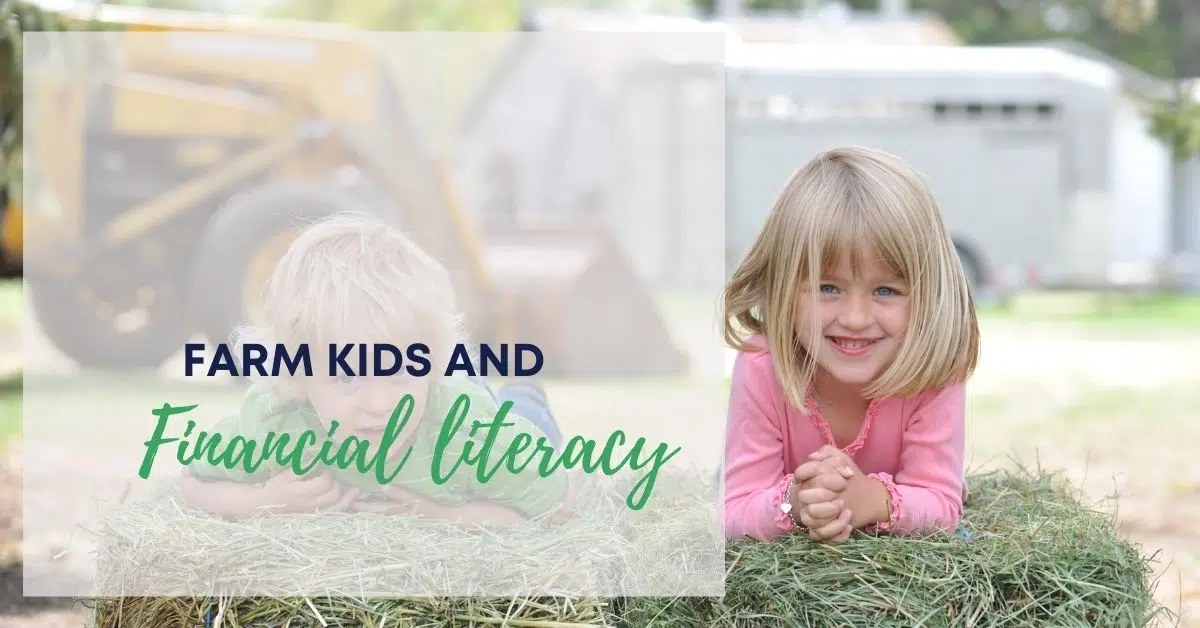
Kids and farms are closely linked.
Most farmers will list “bringing up my kids on the farm” as one of their top five reasons to commit to a future in agriculture.
Those adults who grew up on farms attribute many of their positive character traits such as being a hard worker and a community mindset to their rural roots.
We know how to teach them how to ride a motorbike, or drive a ute at eight, but how and when do we teach them about money??
Our kids are smart, and just saying “we can’t afford it” does little to build their sense of financial responsibility or understanding. It can also fuel a sense of financial insecurity, especially in difficult years. As adults, when they have great well-paying jobs, we want them to set priorities in-line with our values, rather than just buy “stuff” just because there is money in the bank.
An alternative to saying “we can’t afford it” is to try saying things like “If we bought everyone a brand new motorbike, then there would be no money for X Y Z, what do you think is more important?”
As a mother of five, with an upbringing in the cut throat building industry and experience teaching millennials at Uni, here are my tips for raising kids with business smarts and a resilient attitude.
1 – 5 Cuddles and tractor rides, keep them physically safe, keep it fun!
Don’t worry too much about money or jobs etc at this stage, just enjoy the chaotic simplicity. 6 – 8 Conversations about physical production, how money is made as well as the costs associated with production. Maths chat is a great way to develop other skills too. Ask questions like “If each ewe has two lambs, how many lambs will we get out of this mob?” It’s great to develop a sense of financial privacy around this time as well eg “money is like undies, it’s private and we don’t talk about it outside of our family. Other people might have more or less money than us and how they choose to spend it is like the colour of their undies, not our business”.
9-12 Talk about values and family history.
Give them a sense of what it was like for previous generations and the influence of their hard work on our life now. Give them a sense of what they may be capable of with a much easier life. Maths chat can include concepts of percentages in relation to interest, agency fees and assessment of risk. It is also a great time for little enterprises to begin like market stalls, a trial paddock, raising poddys etc. Talk about variable costs vs fixed costs in an enterprise and ensure that their little business covers the variable cost and they make a contribution with their labour.
13-15 Paying kids for farm work is appropriate at this stage at a rate reflective of their ability.
It’s also appropriate for you to borrow a bit back if they have heaps in their account and cash flow is a little tight. A great lesson in cash flow management! If you are confident that they learnt their lesson about the undies, you might want to become increasingly open about your own financial situation. Think about how these conversations can be used to build financial confidence rather than a feeling of insecurity or arrogance.
16 – 20 First, make sure you are on the same page with your spouse and other family members
Succession chats need to start sooner rather than later. It’s not a big formal sit down, it’s a series of conversations in the ute or car, (they are trapped, but you are heading in the same direction) over a number of years. Thankfully the times where sons had to return to the family farm and daughters didn’t get a look in are pretty much over. Passion is more important than a penis. Start openly talking about where their interests lie. Make sure it is very clear that there is no obligation to come home unless they want to. Talk about what would need to happen (qualifications, experience in other businesses, capital input etc) to make it work if they do want to come back. Encourage them to read or study to improve their skills.
GRDC’s Farming The Business Manual is a good text to build farm financial literacy. Scott Pape’s Barefoot Investor is a must read for good financial sense. For the future farm business manager, qualifications in ag science, technology or business may be more valuable than the traditional “trade to fall back on” so consider education and early career choices. Encourage and model fiscal responsibility by discussing what you are buying (or not buying) and why. Model lifelong learning!
Share the love
[Sassy_Social_Share]

